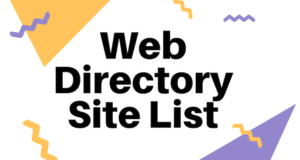Table of Contents
Today building a website doesn’t remain a big task because of some advanced technologies and software. CMS allows users to build a full-scale website without having technical knowledge of it. Yes, it is very convenient for us because now we don’t look for languages like JavaScript, CSS, HTTPS, and other programming languages.
So if you are a beginner and looking for your website then it is not a big deal, we will help you by providing all the details about the best CMS platforms and some factors that you need to consider before choosing the best CMS platform.
What is CMS (Content Management System)?
CMS is software that allows users to create content and manage a website without having technical knowledge of programming languages. Users are allowed to do customize things and multiple users can create content on a single website, all these things are possible only with the help of CMS software.
Generally, we need to learn programming languages and JavaScript to build a website but now it can be easily done with the help of CMS software. So without wasting your time, let us know about the best CMS platforms and the things that we should consider before choosing the best CMS platform.
How to choose the best CMS platform?
Data Portability
Data Portability is one of the main things that a user should consider because we can migrate our website from one hosting to another anytime and for that, we should have the best facility to move our data from one place to another. So users need to make sure that the CMS platform should have the best tool to move data easily.
Costing
Budget is always a big thing while choosing the best CMS platforms, as there are many CMS platforms in the market, some are charging monthly fees, and some are free. But let me clarify that free doesn’t mean fully free, you may need to pay for the design, hosting, and other charges. So if you want to choose the best CMS platform then always be ready for some nasty surprises and choose according to that.
Customer Support
We need support from the company every time, at present, CMS platforms have a straightforward process where we don’t have to face any issue. But still, we may need customer support anytime, and we need to prepare for it. Most platforms have FAQs, which will help in every situation but still, if we have any other doubts then we need to be ready for that because some platforms have fast responses and some have very slow.
Easy To Use
The most important thing to consider is that the platform should be user-friendly. It should come with all the easy options from dragging the elements from one place to another. The platform should be easy for us to create and edit the content, if we want to make some changes after publishing the content then it should be easy to do all those things.
Extensions and Add-ons
As we know that every website has different requirements because of different niches and a CMS platform will not be able to fulfill all the requirements that you want. That’s why users have to take the help of extensions and add-ons that can help them, they should go with that CMS platform where extensions can be installed without any restrictions.
Best and Popular CMS platform
1. WordPress.org
Wordpres.org is one of the best CMS platforms in the market, which has covered 40% of the website market (According to W3Techs). Earlier WordPress was only for blogging but now it is used for all types of online websites. Users need to make sure that WordPress.org is different from WordPress.com, which is a blog hosting platform. At WordPress.org, users can use multiple themes and plugins for more convenience.

Pros
- There is no need for technical skills to operate a website in WordPress.
- Multiple themes and plugins make the whole process quite easy.
- Users can start any type of website on WordPress.
- This is one of the most secured platforms.
Cons
- Open source means that it is a bit risky and open for hackers.
- The plugins requires updates again and again, which is annoying sometimes.
2. WIX
WIX is also a very popular CMS platform where users can start creating their website without paying a single penny. This is a free platform and especially a good choice for beginners because it has an axing user interface but once you achieve good results, you need to move to another CMS platform because of low features availability.

Pros
- Users can easily use the drag and drop feature by editions and customizing pages easily.
- There are a lot of templates that users can apply to their website for an impressive look.
- Users can install apps from WIX Market, which will work like plugins.
Cons
- It comes with limited features.
- Users may face ads issues if they are going with a free plan.
- Exporting the data is a bit difficult task.
3. BigCommerce
BigCommerce is a popular e-commerce CMS platform where users can build their website without having any technical knowledge of coding. It is also called an all-in-one platform, which will be the best option for beginners. Security and backups can be done easily on this CMS platform and the trial period is quite convenient where we can at least have a try before going to the final selection.

Pros
- Users will get a free domain on this platform.
- It provides different types of payment methods like PayPal, Amazon Pay, Credit, and Debut Card.
- Users can easily connect with customer support if they are facing any issues.
Cons
- This platform has very limited themes so the choice is limited.
- Once a user reaches desired sale, they will automatically upgrade with a high pricing plan.
Read more:-
- Hostinger Web Hosting Review
- 6 Cheap Web Hosting Company For WordPress
- Bluehost Web Hosting Service & Plan Review 2021
4. Ghost
Ghost is one of the best CMS platforms for bloggers because it comes with some amazing features where the content will not deliver in a specific way. Users can also publish content on the website with sharing it on other platforms also via mobile. The writing can be done in different ways on this platform to make the whole content attractive and eye-catching.

Pros
- Markdown feature helps in making the content with bold characters.
- This is an SEO-based platform where we don’t need to install any plugins.
- Users will also get the best feature of charging some amount for your content.
Cons
- This platform is a bit complicated to use.
- For more exciting features, they have started paid subscriptions, which were free earlier.
5. Joomla
Joomla is a great CMS platform where users will get some amazing extensions and templates free of cost. This is a free platform where users need to come with a hosting and domain. It comes with some amazing features with one-click installation and the main thing is that it will be the best choice for experienced developers, a beginner will get stuck in understanding all the functions of this platform.

Pros
- It provides a lot of flexibility with a variety of options.
- Users can build a website easily here without having coding knowledge.
- It provides regular security updates and has an amazing user interface.
Cons
- The operating functions are a bit complex.
- It will be a bit tough for non-developers to add designs.
- There are not many modules for sale.
6. Drupal
Drupal is a popular open-source CMS platform, which is especially for developers looking to create the best website. If you are going to build a high-profile website then this is the best platform because users will get some amazing features on this platform. It will help to handle a lot of data and will also help to transfer a website.

Pros
- Customer support is very active and is always ready to serve you.
- Best platform for the website having a lot of traffic.
- This will be the best option for e-commerce websites.
Cons
- This platform is not a good option for beginners because of its complex functionalities.
- Customized themes on Drupal are quite expensive.
7. Squarespace
Squarespace is also a popular website building platform where users will get an SSL certificate, hosting, and other relevant things. It is not an open-source platform, it will be a good choice for beginners because of its easy work management. Another reason for its popularity is that it has a very clean theme and templates.

Pros
- This is an SEO-friendly platform.
- It will work very smoothly on mobile phones.
- It also provides e-commerce functionalities.
Cons
- Users need to pay monthly fees to use their services.
- Not a good choice for big businesses because of limited features.
Read more:-
8. Blogger
If you are new in the blogging field, Blogger will be the best choice where you will be able to learn a lot of things about the proper management of a website. Here users will get a free domain and services, which will be effective to learn a lot of things about blogging. We can say that this is the best choice for beginners.

Pros
- This platform will help to learn a lot of things.
- It has a very basic and simple user interface.
- Easy to use.
Cons
- It is a good choice only for beginners.
- It has very limited features.
9. Weebly
Weebly is a platform launched a decade ago and comes with some axing features and plans for the users. It has also a free basic plan for normal websites where users will get store features as well. For more advanced features, users need to go with advanced plans and they have also some amazing marketing plans for more exposure.

Pros
- Drag and drop feature makes it quite convenient to operate.
- SEO-friendly features assure growth in the future.
- Blogging functionality and e-commerce are also amazing options.
Cons
- Users need to pay monthly fees for advanced features.
10. Magento
Magento is a popular open-source platform where users can build their websites. It is free to use, users just need to install it on their hosting. This is launched by Adobe, so users can trust their services easily. If you want some more advanced features with full support them you need to shift to the paid plans, which are quite expensive.

Pros
- It comes with some amazing extensions for more convenience.
- The community updates the plugins regularly for more convenience.
- It provides so many payment gateway options.
Cons
- Support system will not work on free plans.
- The plans are quite expensive.
- It will work only with dedicated hosting.
11. TYPO3
TYP03 is a popular and free open-source CMS platform where users can build their websites. This is an older platform, which is good for internal company websites. It comes with some amazing functionality extensions that make the whole process easier.

Pros
- It comes with sizeable community.
- It comes with more than 6000 extensions for more functionalities.
- It can be easily extended.
Cons
- They have very limited themes.
- Users need high-level knowledge to operate a website on this platform.
CONCLUSION
So these are the best CMS platforms, as we have given all the details about the best CMS platforms and things that we should consider to get the best CMS platforms. Now you can easily decide the best platform by reading all the details, now if you have any doubts related to this article then let us know in the comment section.




